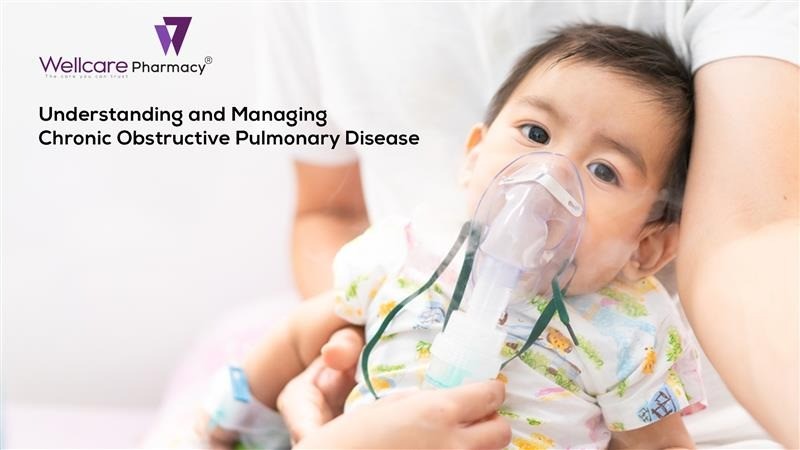
Understanding and Managing Chronic Obstructive Pulmonary Disease (COPD)
Chronic Obstructive Pulmonary Disease (COPD) is a progressive lung disease that makes it difficult to breathe.
It's often caused by long-term exposure to irritants like cigarette smoke, air pollution, or chemical fumes.

Symptoms of COPD
- Shortness of breath, especially during physical activity
- Chronic cough, often producing mucus
- Wheezing
- Chest tightness

Managing COPD
While there's no cure for COPD, effective management can significantly improve quality of life and slow disease progression. Here are some key strategies:
Medication:
- Bronchodilators: These medications relax the muscles in the airways, making it easier to breathe.
- Inhaled Corticosteroids: These medications reduce inflammation in the airways.
- Combination Therapies: A combination of bronchodilators and corticosteroids may be prescribed for optimal symptom control.
Pulmonary Rehabilitation:
This program involves exercise training, education, and counseling to help people with COPD manage their condition and improve their quality of life.
Oxygen Therapy:
For individuals with severe COPD, supplemental oxygen therapy can help improve breathing and overall health.
Lifestyle Modifications:
- Smoking Cessation: Quitting smoking is the most important step in managing COPD.
- Healthy Diet: A balanced diet can help maintain overall health and reduce the risk of complications.
- Regular Exercise: Regular physical activity, such as walking, swimming, or cycling, can improve lung function and quality of life.
- Avoid Exposure to Irritants: Minimize exposure to irritants like smoke, pollution, and chemical fumes.
Vaccination:
Get vaccinated against influenza and pneumonia to reduce the risk of respiratory infections.

Coping with COPD
Living with COPD can be challenging, but there are strategies to cope with the condition:
- Stress Management: Practice relaxation techniques like yoga, meditation, or deep breathing to reduce stress.
- Emotional Support: Join a support group or talk to a counselor to manage emotional challenges.
- Energy Conservation: Pace yourself and avoid overexertion to conserve energy.
- Healthy Diet: A balanced diet can help maintain overall health and energy levels
In addition to the strategies mentioned above, here are some additional tips to help you manage COPD:
Environmental Factors:
- Air Purifiers: Using an air purifier can help reduce exposure to allergens and pollutants.
- Ventilation: Ensure proper ventilation in your home, especially in the bedroom.
- Avoid Extreme Temperatures: Extreme temperatures can worsen COPD symptoms. Dress appropriately for the weather and avoid spending too much time in extreme conditions.
Nutrition and Hydration:
- Hydration: Drink plenty of fluids to keep your airways moist.
- Nutrient-Rich Diet: A balanced diet rich in fruits, vegetables, and lean protein can help maintain overall health and energy levels.
- Avoid Irritating Foods: Some foods and drinks, such as spicy foods and caffeine, can irritate the respiratory tract.
Here are some supplements that may be beneficial for people with COPD:
1. Vitamin D
Role: Vitamin D plays a vital role in immune function and lung health.
Benefits: It can help reduce inflammation in the lungs and improve lung function.
2. Vitamin C
Role: A powerful antioxidant that can help protect cells from damage.
Benefits: It can help reduce the severity and duration of respiratory infections.

3. Omega-3 Fatty Acids
Role: Omega-3 fatty acids have anti-inflammatory properties.
Benefits: They can help reduce inflammation in the lungs and improve lung function.

4. Curcumin
Role: A potent anti-inflammatory compound found in turmeric.
Benefits: It can help reduce inflammation in the lungs and improve lung function.
Remember, it's important to work closely with your healthcare provider to develop a personalized management plan.
By following these tips and seeking professional guidance, you can effectively manage COPD and improve your quality of life.












